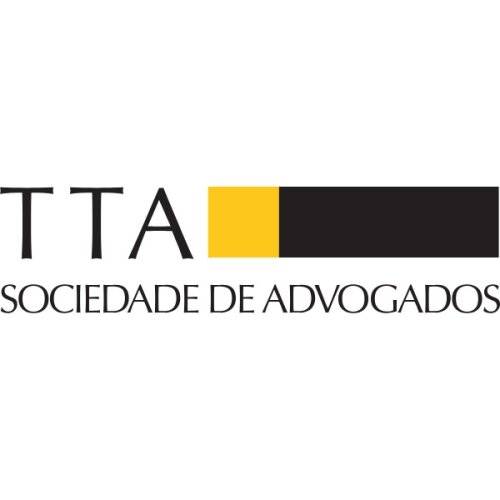Best Real Estate Lawyers in Maputo
Share your needs with us, get contacted by law firms.
Free. Takes 2 min.
Free Guide to Hiring a Real Estate Lawyer
List of the best lawyers in Maputo, Mozambique
About Real Estate Law in Maputo, Mozambique
Real estate law in Maputo, Mozambique is primarily governed by national legislation, including the Land Law (Lei de Terras) and related regulations. These laws govern property ownership, land use, and real estate transactions. Maputo, being the capital city, has seen a surge in real estate development fueled by economic growth and an increasing demand for residential, commercial, and industrial properties.
Why You May Need a Lawyer
Engaging a lawyer for real estate transactions in Maputo can provide invaluable assistance in several situations:
- Property Transactions: Buying or selling properties requires navigating complex legal requirements which a lawyer can help streamline and ensure compliance with.
- Land Ownership Disputes: Issues regarding land title and ownership can often arise, needing expert legal intervention to resolve.
- Contract Reviews: Drafting and reviewing purchase agreements, lease contracts, and other real estate documents to protect your interests.
- Zoning and Land Use Regulations: Advising on zoning laws and land use regulations to ensure no legal hurdles in developing or using property.
- Tax Implications: Guidance on the tax implications of real estate transactions and ensuring all obligations are met.
Local Laws Overview
Several key aspects of local laws impact real estate in Maputo:
- Land Ownership: Most land in Mozambique is owned by the state, with individuals and companies holding usage rights. These rights are typically granted for renewable 50-year terms.
- Land Registry: The land registry system requires all property transactions to be recorded, ensuring transparency and legal clarity.
- Foreign Ownership: Foreigners can engage in real estate transactions but must adhere to specific regulations such as applying for special licenses.
- Zoning Laws: Municipalities, including Maputo, have zoning laws that dictate permissible uses for land in different areas, which must be adhered to during development.
- Environmental Regulations: Real estate development must also comply with environmental regulations aimed at sustainable development and conservation.
Frequently Asked Questions
1. Can foreigners buy property in Maputo?
Yes, foreigners can buy property in Maputo, but they must acquire special licenses and comply with local land use laws.
2. How is property ownership transferred in Mozambique?
Property ownership transfer in Mozambique occurs through notarized contracts, and the transaction must be registered with the land registry.
3. What is the role of the land registry?
The land registry records all property transactions, providing legal documentation of ownership and rights to use the property.
4. Are there property taxes in Maputo?
Yes, property transactions and ownership are subject to various taxes, including transfer taxes and annual property taxes.
5. What documents are needed for a property sale?
Commonly required documents include the property title, identification of buyer and seller, notarized contract, and proof of tax payments.
6. What are the usual steps in purchasing property?
The typical steps include identifying the property, conducting due diligence, drafting a sales agreement, notarizing the contract, and registering the transaction with the land registry.
7. Can disputes over land ownership arise?
Yes, disputes can arise, especially in areas with communal land rights or unclear title history. Legal intervention may be necessary to resolve such issues.
8. What should I consider in a lease agreement?
Important considerations include the duration of the lease, rental payment terms, maintenance responsibilities, and provisions for termination and renewal of the lease.
9. Are there zoning restrictions in Maputo?
Yes, there are zoning laws that restrict how land can be used in different areas. These must be reviewed to ensure compliance before proceeding with any development.
10. How can I verify the legitimacy of a property title?
You can verify the legitimacy of a property title by conducting a title search at the land registry and consulting with a legal expert.
Additional Resources
Here are some valuable resources for real estate matters in Maputo:
- Land Registry Office: For title searches and recording transactions.
- Mozambique Bar Association: For referrals to qualified real estate lawyers.
- Municipal Planning Departments: For information on zoning and land use regulations.
- Notary Public Offices: For notarization of contracts and documents.
- Environmental Ministry: For information on environmental regulations affecting real estate.
Next Steps
If you need legal assistance in real estate in Maputo, consider the following steps:
- Consult with a Lawyer: Reach out to a qualified real estate lawyer who can provide professional guidance tailored to your specific situation.
- Conduct Due Diligence: Gather and review all relevant documents and information regarding the property in question.
- Understand Legal Requirements: Familiarize yourself with the local laws and regulations that will impact your real estate transaction or situation.
- Document Everything: Ensure all agreements and transactions are properly documented and notarized to protect your interests.
- Follow Professional Advice: Work closely with your lawyer to navigate the legal process and avoid common pitfalls.
Lawzana helps you find the best lawyers and law firms in Maputo through a curated and pre-screened list of qualified legal professionals. Our platform offers rankings and detailed profiles of attorneys and law firms, allowing you to compare based on practice areas, including Real Estate, experience, and client feedback.
Each profile includes a description of the firm's areas of practice, client reviews, team members and partners, year of establishment, spoken languages, office locations, contact information, social media presence, and any published articles or resources. Most firms on our platform speak English and are experienced in both local and international legal matters.
Get a quote from top-rated law firms in Maputo, Mozambique — quickly, securely, and without unnecessary hassle.
Disclaimer:
The information provided on this page is for general informational purposes only and does not constitute legal advice. While we strive to ensure the accuracy and relevance of the content, legal information may change over time, and interpretations of the law can vary. You should always consult with a qualified legal professional for advice specific to your situation.
We disclaim all liability for actions taken or not taken based on the content of this page. If you believe any information is incorrect or outdated, please contact us, and we will review and update it where appropriate.
Browse real estate law firms by service in Maputo, Mozambique
Maputo, Mozambique Attorneys in related practice areas.













